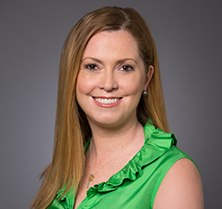Unlocking Potential
What Makes PD Effective for Adult Learners?
by Kate Wheeler, Vice President of Project Oversight
Professional development (PD) is a cornerstone of continuous improvement in any profession, particularly in education. But, not all PD is created equal. For adult learners, effective professional development hinges on specific principles that cater to the unique learning needs of adults. Understanding these principles can transform PD from a mandatory exercise into a powerful tool for personal and professional growth. When you are planning professional development for your staff ask yourself these five key questions.
1. Is it relevant and practical?
Effective PD should be relevant to the context of your organization and provide practical solutions that your team can implement immediately. To ensure that your content meets these criteria, use data to determine the content of your PD. Sources to consult could include classroom observation data, student assessment data, and staff surveys. Once you have defined key areas of need, design sessions that focus on practical, actionable strategies rather than abstract theories. This can be achieved by incorporating modeling, role play, and case studies that are directly related to your staff’s daily experiences.
2. Will it move the needle (and how will you monitor that)?
The real work begins when the PD session concludes. To ensure the effectiveness of your training, devise a plan to monitor implementation of PD in classrooms when you are planning your PD session. Monitoring actions may include observations, Learning Walks, student work review, among many others. Evidence gathered through monitoring actions will allow you to provide ongoing support to all staff and/or individual teachers through various adult learning opportunities such as coaching and mentoring programs, Professional Learning Communities (PLCs), and follow-up PD.
3. Is it engaging?
Engagement is critical for adult learners, who benefit from being active participants rather than passive recipients. Interactive elements such as discussions, group work, and hands-on activities make learning more effective and enjoyable. As you plan your PD, consider some of these engagement strategies:
- Collaborative Learning: Encourage teamwork and peer-to-peer learning through group projects and discussions.
- Problem-Solving Activities: Use real-world problems to foster critical thinking and application of knowledge.
- Interactive Technology: Incorporate tools such as polls, quizzes, and interactive presentations to keep learners engaged.
4. Is it respectful of the experience of participants?
Adult learners bring a wealth of experience to the table. Effective PD respects and leverages this experience, allowing participants to connect new learning to their existing knowledge base. To honor the experience of your participants, create opportunities for them to share their insights. You may also use mentoring programs to facilitate knowledge exchange between more and less experienced professionals.
5. Does it provide a variety of learning modalities?
As educators know, different people learn in different ways. Offering a variety of learning modalities ensures that all participants can engage with the content in a way that suits them best. When building your PD calendar, consider including a variety of experiences such as:
- Workshops: In-person or virtual sessions that offer hands-on learning experiences.
- Online Courses: Self-paced or instructor-led courses that provide flexibility.
- Podcasts, Books, or Media: Easily accessible formats for ongoing learning and inspiration.
Get Support When You Need It
Effective professional development for adult learners is multifaceted, combining relevance, engagement, respect for experience, diverse learning modalities, and ongoing support. By incorporating these elements, PD can become a dynamic and impactful experience that not only enhances professional skills but also fosters a culture of continuous improvement and lifelong learning. If you are looking to outsource some components of your Professional Development training, talk to SchoolWorks. We offer a variety of solutions that can meet the needs of your team.
Article by Kate Wheeler,
SchoolWorks Vice President of Project Oversight

